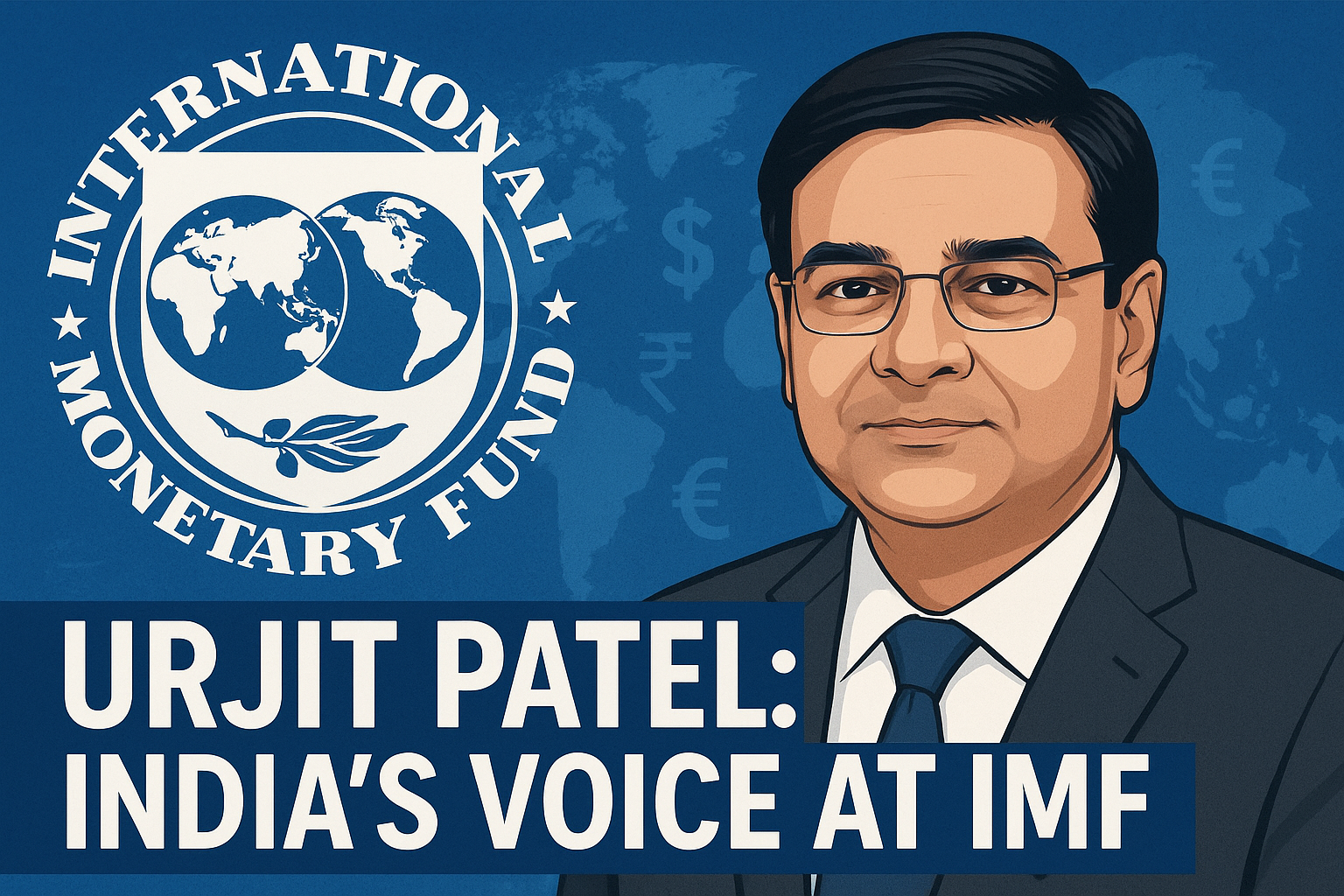
The Government of India has named former Reserve Bank of India (RBI) Governor Urjit Patel as the country’s new Executive Director (ED) at the International Monetary Fund (IMF) in Washington. His appointment has been approved for a period of three years by the Appointments Committee of the Cabinet. Patel will take charge of this important role at a time when the global economy is facing several uncertainties.
The IMF’s Executive Board is responsible for conducting the day-to-day business of the organisation. It is made up of 25 directors elected by member countries or groups of countries. The Board works closely with the Managing Director, who serves as its chairman. Their main task is to handle the financial and policy matters of the IMF, which often involves reviewing papers prepared by IMF staff and management. The Board meets several times a week, making the role of each Executive Director highly significant.
The position had remained vacant since April 30 this year, when Krishnamurthy Subramanian, the former ED, completed his term. Subramanian’s exit was surrounded by debates linked to his writings and comments about IMF protocols. Patel’s appointment comes as a step to fill this gap and ensure that India’s voice continues to be heard in the decision-making process of the IMF.
Urjit Patel’s career has been closely linked with India’s economic policies. He was appointed RBI Governor on September 4, 2016, after Raghuram Rajan stepped down. Before that, Patel served as Deputy Governor of the RBI for almost three years. However, his own tenure as Governor was cut short when he resigned on December 10, 2018, citing personal reasons. Despite his sudden exit, Patel left a strong mark on the institution.
Prime Minister Narendra Modi had praised Patel’s contribution when he left the RBI. Modi described him as a thorough professional with impeccable integrity, noting his six years of service at the RBI in leadership positions. The Prime Minister also said that Patel had left behind a valuable legacy and that the country would miss his leadership.
Patel’s role as RBI Governor was not free from challenges. In 2017, he opposed the electoral bonds scheme in the form that the government had planned. Reports based on RTI applications suggest that Patel recommended only the RBI should issue such bonds, and that too in digital form. This showed his cautious approach towards financial reforms that could affect transparency. Years later, in 2024, the Supreme Court scrapped the electoral bonds scheme altogether.
During his tenure, Patel also appeared before the standing committee of finance on June 12, 2018, where he sought more powers from the government to regulate public sector banks. His request came after the massive fraud of nearly Rs 14,500 crore at Punjab National Bank came to light. Patel argued that the RBI needed greater authority to supervise banks in order to prevent such incidents in the future.
Although Patel could not complete his term as RBI Governor, his experience and strong professional record have helped him return to a key international role. He is also currently serving as one of the eight non-executive directors of Britannia Industries, showing his continued involvement in corporate and financial matters.
The IMF appointment marks Patel’s re-entry into public service at the global level. India has been working to strengthen its position in international financial institutions, and Patel’s appointment reflects the government’s effort to ensure experienced leadership represents the country. His knowledge of India’s economic challenges, global finance, and central banking practices is expected to add weight to his voice at the IMF.
For students of economics and politics, Patel’s journey provides valuable lessons. It highlights how individuals with expertise in finance and policy can move between national roles and international platforms. It also underlines the fact that India’s economic leadership is not confined within the country’s borders, but is part of a larger global network where decisions affect nations across the world.
As Patel takes charge of his new role, expectations will be high. The IMF continues to play a central role in stabilising global economies during crises, and India’s Executive Director will be a vital participant in those discussions. Patel’s career, marked by both challenges and achievements, now enters a new chapter, one that will once again test his leadership and vision.





















